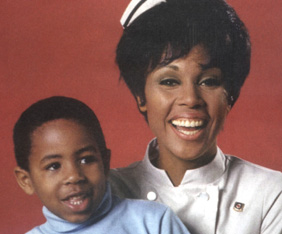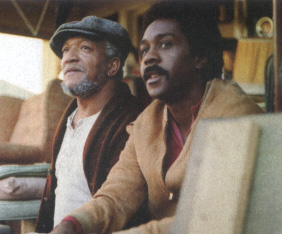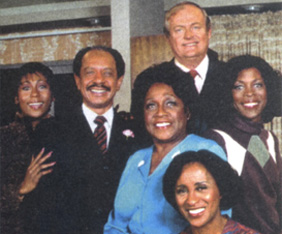- Home
- Introduction, Update Information, Links
- The Super Seventies "Classic 500"
- Readers' Favorite Seventies Albums
- Seventies Single Spotlight
- The Top 100 Seventies Singles
- Favorite Seventies Artists In The News
- Seventies Almanac - Year By Year
- Seventies Singles - Month By Month
- Seventies Albums - Month By Month
- Seventies Daily Music Chronicle
- Seventies Superstars In Their Own Words
- The Super Seventies Archives
- Seventies Trivia Quizzes & Games
- Seventies MIDI Jukebox
- The Super Seventies Bookstore
- The Super Seventies Photo Gallery
- Seventies' Greatest Album Covers
- Popular Seventies Movies & TV
- Seventies Celebrity Portrait Gallery
- Seventies Lyrics Hit Parade
- Top Seventies Artist Music Videos
- Seventies Usenet Music Forums
- Seventies Smiley Calendar
- EXTRA!
- Superseventies.com Facebook Page
- Superseventies.com Reddit Discussions
- The Super Seventies Blog
- Tweet The Seventies
- RockSite InfoBank
- Beatlefan Site
- Thanks For Your Support! / Top Sellers
- Search The Rock Site/ The Web
![]()
How
Good Times helped revolutionize TV 50 years
ago and changed the face of the small screen.
By Jeremy Helligar in People
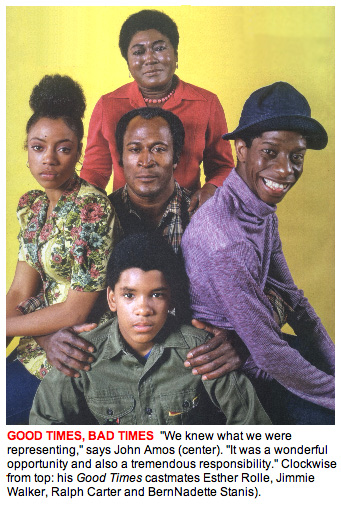
![]() hortly before John Amos and Esther Rolle made television history as James and Florida Evans on the '70s sitcom Good Times
, they had a chance encounter in Los Angeles. "It was over the fence in the unemployment office," Amos, 83, recalls. "We both were picking up our unemployment checks, as actors do. She was in one line, I was in another, and we had the most meaningful dialogue."
hortly before John Amos and Esther Rolle made television history as James and Florida Evans on the '70s sitcom Good Times
, they had a chance encounter in Los Angeles. "It was over the fence in the unemployment office," Amos, 83, recalls. "We both were picking up our unemployment checks, as actors do. She was in one line, I was in another, and we had the most meaningful dialogue."
After CBS picked up the series, which depicted the grim but hopeful reality of a Black family living in the Chicago projects, more meaningful conversations followed. "I knew we were about to embark on something that was going to be difficult," Amos recalls. "We were portraying a segment of the population that had been ignored and had been mislabeled and categorized as a negative element, when in fact we were anything but that."
As a show revolving around the have-nots, Good Times, which ran from 1974 to 1979, didn't always mirror its title. "It was honest," says Alan Bergman, 97, the Oscar-winning songwriter who cowrote the lyrics of the show's iconic theme song with his late wife, Marilyn. "It wasn't a musical-comedy version of this life. It was an honest depiction of the life of Black Christians during that era. Honesty always pays off."
Developed by Norman Lear, who had already created All in the Family
and Maude
, Good Times
featured an all-Black main cast led by Rolle, Amos and the actors who played their three children: Jimmie Walker (as oldest son J.J., a budding artist), BernNadette Stanis (as daughter of Thelma, an ambitious student) and Ralph Carter (as son Michael, a miniature Malcolm X).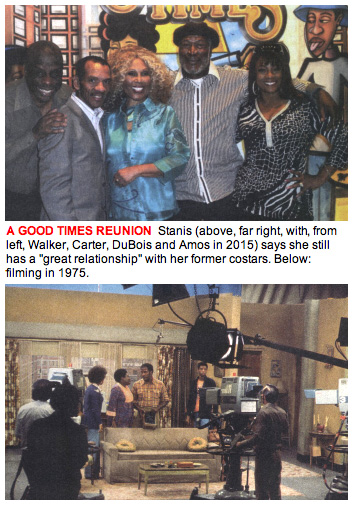 Rolle's character, Florida, first introduced on Maude
in 1972 as the no-nonsense housekeeper, became cohead of her own household on Good Times
-- and for the first time ever, a TV series would focus squarely on a Black nuclear family. "She wanted America to know that there are Black families that have mothers and
fathers that raise their children," Stanis, 69, says of Rolle, who died in 1998 at age 78.
Rolle's character, Florida, first introduced on Maude
in 1972 as the no-nonsense housekeeper, became cohead of her own household on Good Times
-- and for the first time ever, a TV series would focus squarely on a Black nuclear family. "She wanted America to know that there are Black families that have mothers and
fathers that raise their children," Stanis, 69, says of Rolle, who died in 1998 at age 78.
Throughout its six-season run, Good Times tackled a range of then-and-still-current issues, including racism, unemployment and domestic violence; by its second year, it was the seventh-most-popular show in prime time. It later introduced viewers to Janet Jackson -- who made her TV series debut playing Penny -- and gave the world J.J.'s famous catchphrase "Dy-no-mite!" "I was really the only character that was out fully to do comedy," Walker, 75, says. "So sometimes it's just a point of release for the audience to say, 'Wow, that was heavy, but look at this guy. All right, finally we can relax and laugh.' Making me the comedic foil of the show was a whole different deal."
Good Times
was a different deal on many levels. It brought Black art, Black pride and Black issues into America's living rooms. In one episode, Michael begs his mother to let him replace the portrait of a White Jesus hanging on the living-room wall with J.J.'s painting of a Black Jesus. In another, J.J. is arrested after being mistaken for a young, Black armed-robbery suspect who looks nothing like J.J. "In light of all the things that are happening socially, the shooting of young Black men by police officers and others, we covered all of those things," Amos says. "We covered drugs. We covered all the issues that are so prevalent in the community today. We covered them 50 years ago."
In another, J.J. is arrested after being mistaken for a young, Black armed-robbery suspect who looks nothing like J.J. "In light of all the things that are happening socially, the shooting of young Black men by police officers and others, we covered all of those things," Amos says. "We covered drugs. We covered all the issues that are so prevalent in the community today. We covered them 50 years ago."
And with the show debuting one month before the end of The Brady Bunch , -- with Marcia Brady as the quintessential all-American girl -- Thelma became the first Black female teenager regularly featured on a TV sitcom. Viewers saw her mature into an adult and marry a pro football player. "Thelma was a girl that had high aspirations," says Stanis. "Although she was in the projects, it did not stop her dreams. She always wanted to become something."
Thelma had good role models. James and Florida were something that, at the time, didn't exist on TV: a Black married couple in a loving, stable and and romantic relationship. "We knew what we were representing," says Amos (who later earned an Emmy nomination as the adult Kunta Kinte in Roots
, and later went on to roles on The West Wing
and in 1988's Coming to America
and its 2021 sequel, Coming 2 America
). Adds Stanis: "That's why I love Ester Rolle and I love John so much on that show, because they brought something to America that no one had ever seen. No matter what, he loved his wife, and she supported her husband. It was such a beautiful thing."
| 1968-1971 |
1972-1977 |
1973-1983 |
|
|
|
|
| "It was one of the first
[series] to show African Americans in a middle-class
environment versus a stereotypical environment where they're
servants basically," says Marc Copage, who played Corey
Baker, the young son of Diahann Carroll's title character, a
widowed nurse (above, in 1968). "Julia was probably the
first independent Black woman on TV, Diahann was a huge role
model for a lot of popular Black actresses that are thriving
today." |
The series -- the first sitcom to
feature a predominantly Black cast since Amos 'n' Andy
in
the '50s -- starred stand-up comic Redd Foxx (above, with
Demond Wilson) as junk dealer Fred Sanford. "I believe
laughter and joy adds time to one's life," show creator
Norman Lear said in 2022. "Redd Foxx absolutely added time
to my life." |
"The Black Panthers came to my office to complain about the 'garbage' they were seeing on TV. They were upset about Blacks only being portrayed as poor or as maids," Norman Lear says. "Thankfully the meeting ended better than it began, as we were already creating The Jeffersons ." It starred (from left) Berlinda Tolbert, Sherman Hemsley, Isabel Sanford, Franklin Cover, Marla Gibbs and Roxie Roker. "We wanted to reflect America [by] showing a well-off Black family." |
![]() Reader's Comments
Reader's Comments
No comments so far, be the first to comment .
![]() Best of EXTRA!
| EXTRA!
| Main Page
| Seventies Single Spotlight
| Search The RockSite/The Web
Best of EXTRA!
| EXTRA!
| Main Page
| Seventies Single Spotlight
| Search The RockSite/The Web


